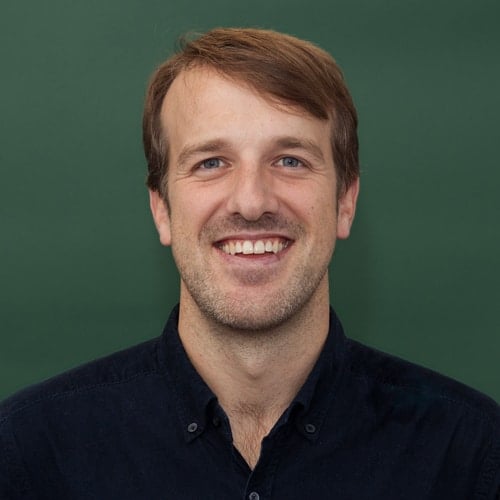Shape the future of your
research in Denmark
Where world-class research meets world-class living
Research that goes beyond the lab
In Denmark, we get it: groundbreaking research needs more than shiny labs and impressive titles.
It takes the right environment. That's why we offer the freedom, secure funding, and support to focus on what matters — shaping the future of your research, your way.
It’s not just about prestigious institutions; it’s about a collaborative community where your ideas are heard and supported, and the impact of your work is felt far beyond the lab. With extensive industry partnerships and opportunities for real-world application, you’ll be pushing boundaries, not paperwork.
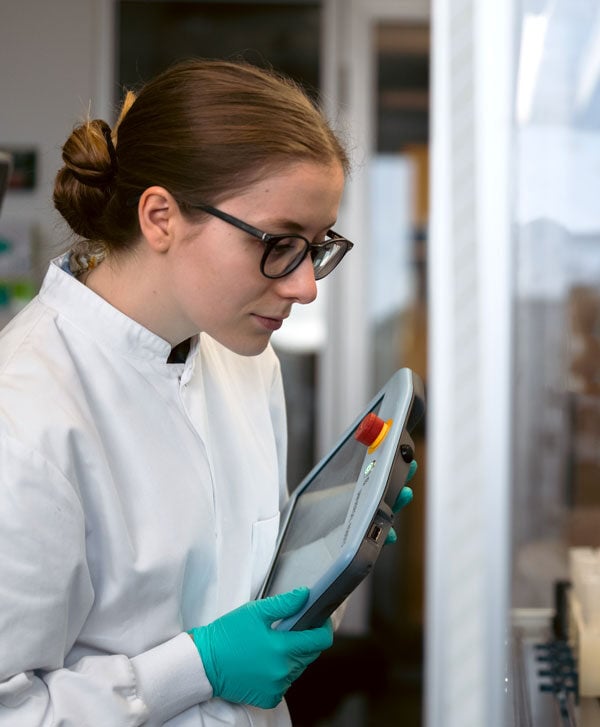
Daniel Rasmussen

Marvin Kuhr
Why Denmark?
01
02
03
04
Life that goes beyond the workplace
Denmark is famous for its work-life balance—and here, that’s more than just a buzzword.
While you create a lasting impact in your field, Denmark has all you need for relaxation, adventure, and growth. From winter bathing to weekend retreats, get ready to thrive both professionally and personally.
We believe that a balanced life leads to better research — because happier, well-rested researchers push innovation to new heights. Research thrives when life does too.
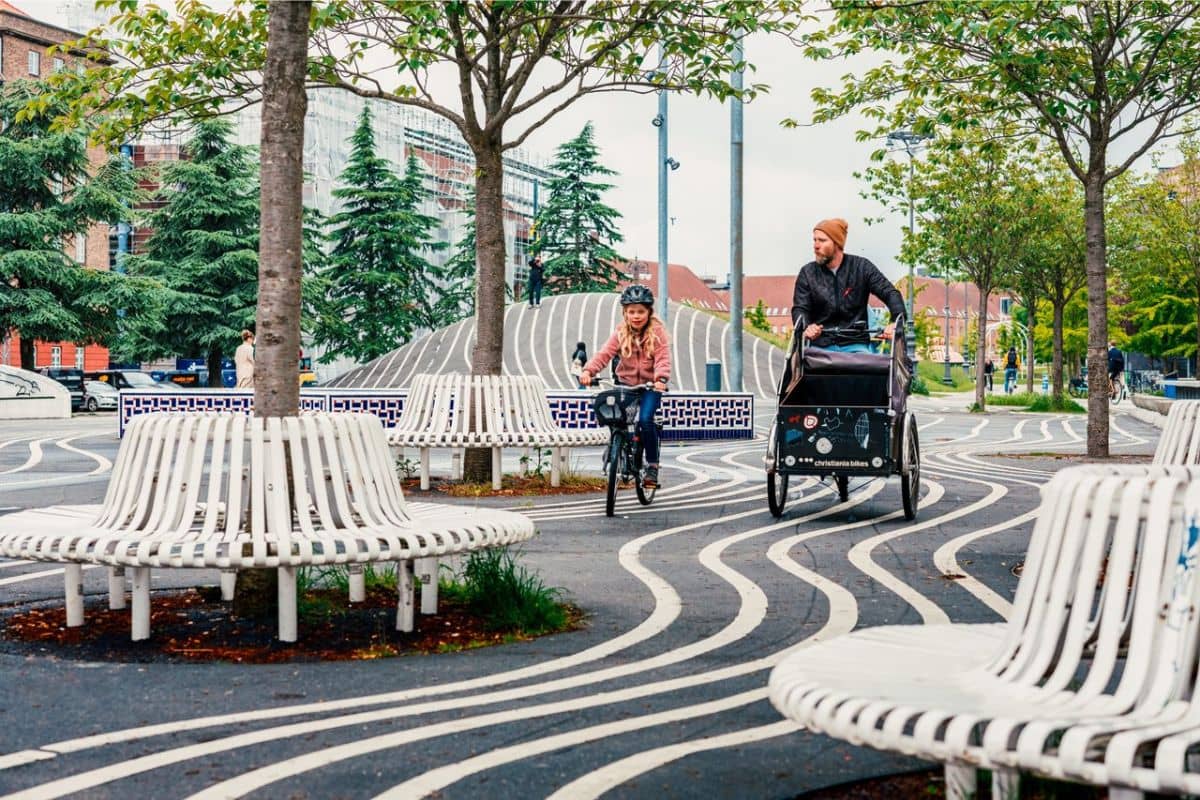
Thomas Høyrup Christensen
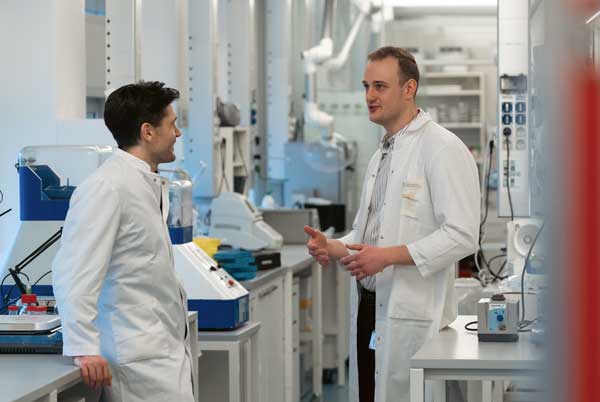
Daniel Rasmussen
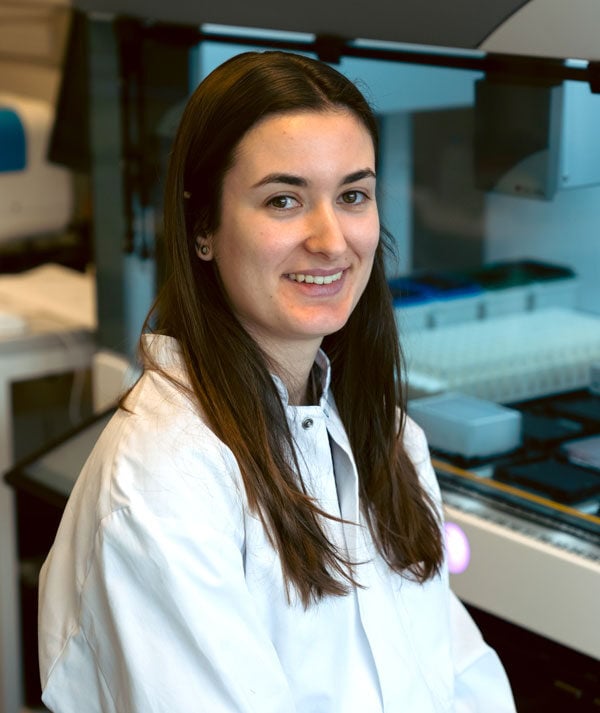
Daniel Rasmussen
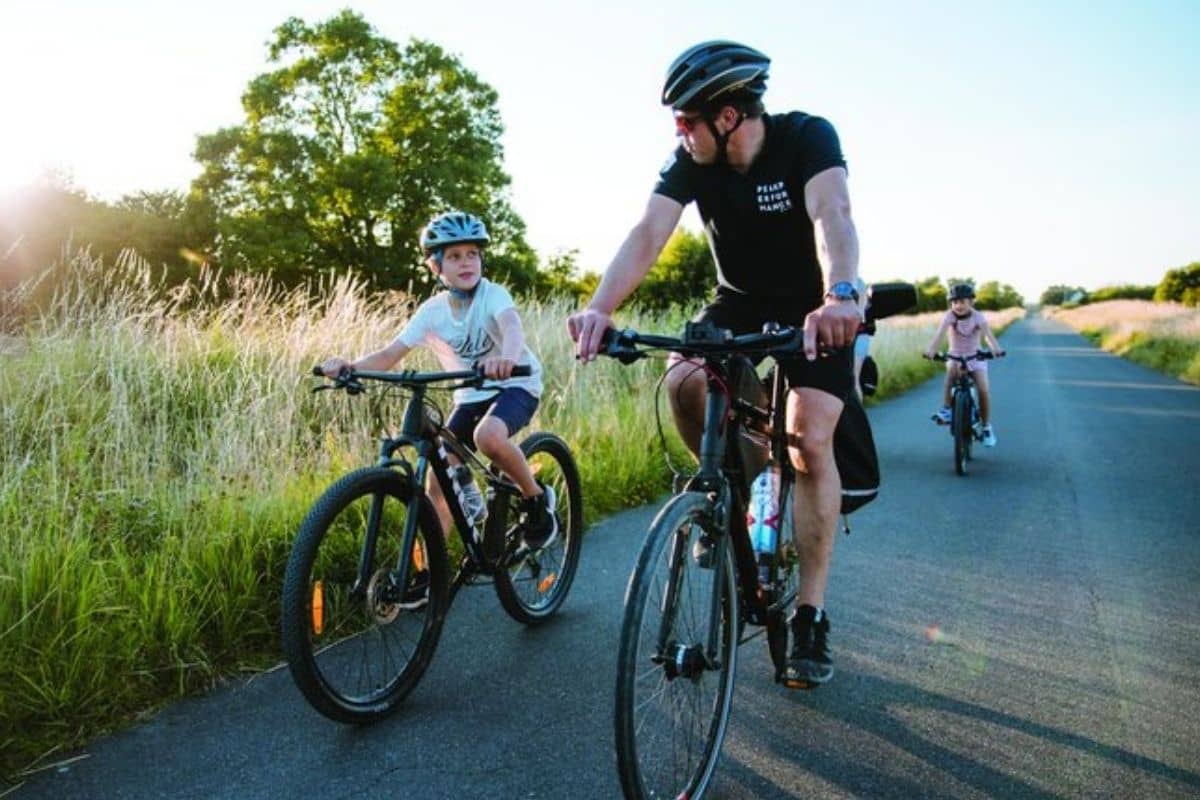
Destination Sønderjylland
Ready to take the next step in your research?
Explore exciting opportunities in Power-to-X, Neuroscience, Biosolutions, and Quantum.
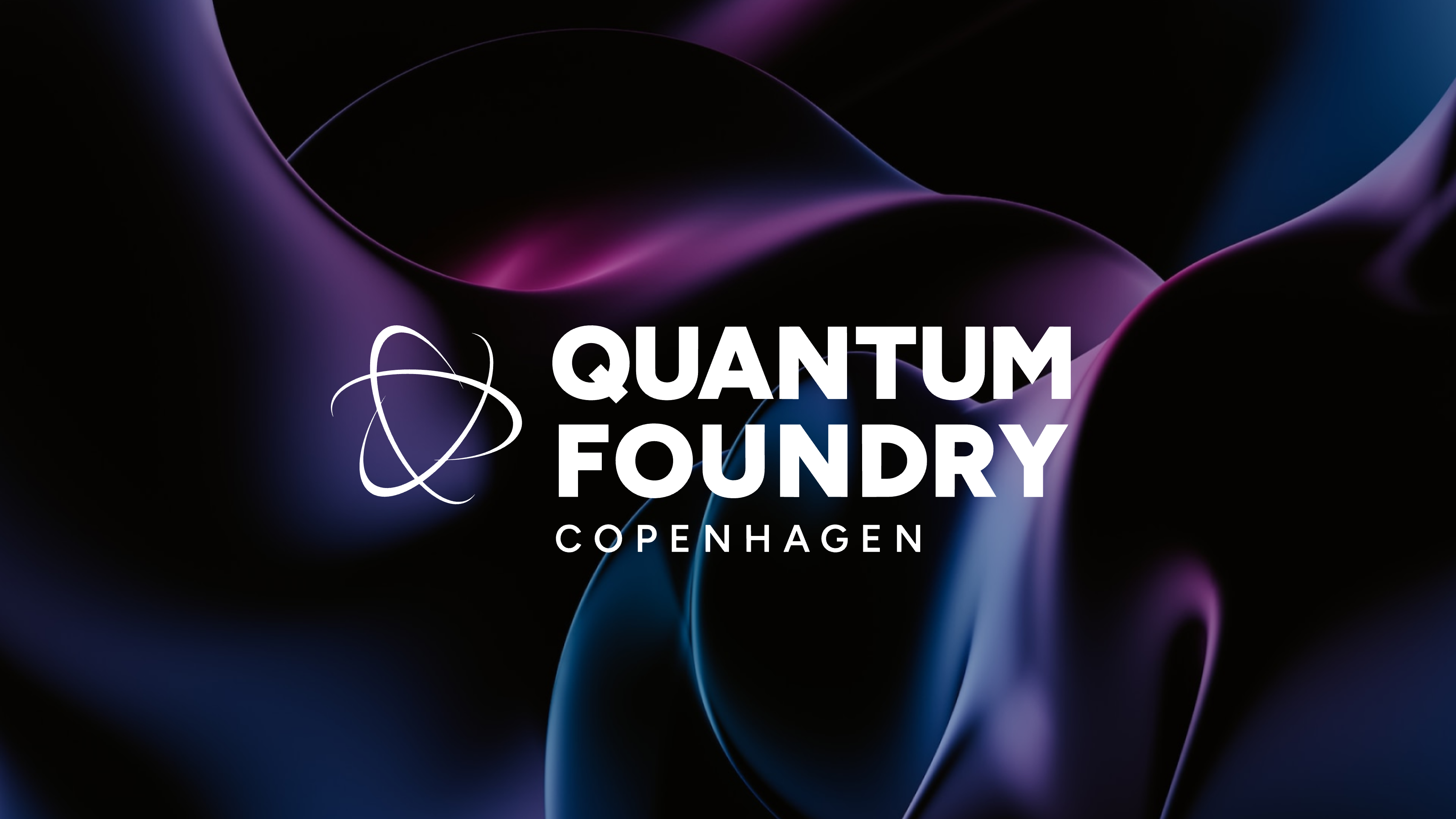
Electrical Engineering Assistant (Part-time student position)
Quantum Foundry is looking for a motivated and hands on student assistant to support the assembly of electrical control cabinets and assist with PLC programming tasks. This role is ideal for a technical student who enjoys practical work, learning by doing, and gaining real world experience with industrial automation systems. You will work closely with engineers to build, wire, and test small electrical cabinets, participate in system bring up, and contribute to PLC related development tasks. You don’t need to be fully experienced – curiosity, reliability, and willingness to get your hands dirty are more important.
/university-of-copenhagen.png)
Postdoctoral Fellowship in Theoretical High Energy Physics/Mathematical Physics
The Niels Bohr Institute (NBI) invites applications for a postdoctoral fellowship in Theoretical High Energy Physics/Mathematical Physics. The appointment is for a period of three years, starting in the Fall of 2026. The Villum Investigator Group “Quantum Quenches from Quantum Fields” at the Niels Bohr International Academy at the Niels Bohr Institute has an opening for a postdoc position starting in the Fall of 2026. The group works on themes at the interface between theoretical high energy physics, condensed matter physics and quantum information theory.
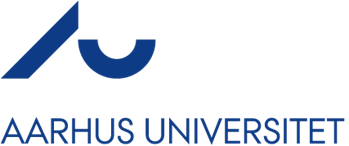
Faculty position in Plant Molecular Biology (Associate Professor or Tenure-Track Assistant Professor...
The Department of Molecular Biology and Genetics, Aarhus University aims to strengthen its position within the broader field of Plant Molecular Biology and the Green transition. We therefore invite applications for a position to be filled at either Tenure-Track Assistant Professor or Tenured Associate Professor level, starting summer 2026 or as soon as possible thereafter.
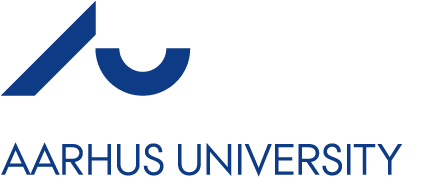
Postdoc position within antibody engineering and therapy in Parkinson’s Disease
You will be working with antibodies targeting α-synuclein aggregates for therapy against Parkinson’s Disease. The antibodies will be engineered for optimal target engagement. The work involves a close collaboration with PI Dr. Simon Glerup (CSO, Draupnir Bio ApS) and Assoc. Prof. Nathalie Van Den Berge (Dept. of Clinical Medicine, Aarhus University). Your profile Applicants should hold a PhD in experimental life science, preferably within antibodies (engineering and cellular impact). Experience with protein aggregation is an added advantage. You are expected to be interested in both fundamental and translational science and to enjoy working in the interface between academia and industry. You take ownership of your project but are a strong team player who engages constructively but critically with your colleagues. Who we are Work will be carried out at iNANO in the group of Daniel Otzen and in close regular contact with the Glerup and Van Den Berge groups (both based in Aarhus). We have complementary research activities within Parkinson’s Disease in the research project NanoPANS. Our many collaborations create a vibrant and enthusiastic mission-driven atmosphere. We offer: an exciting and friendly interdisciplinary environment with many national, international and industrial collaborators a research climate encouraging lively, open and critical discussion within and across different fields of research a work environment with close working relationships, networking and social activities a workplace characterised by professionalism, equality and a healthy work-life balance. Contact information For further information, please contact: Professor Daniel Otzen, dao@inano.au.dk

Tenure Track Assistant Professor in Life Cycle Assessment of Food and Agricultural Systems
The Department of Agroecology at Aarhus University, Denmark, offers an attractive career opportunity for promising and skilled researchers. We invite applications for a position as Tenure Track Assistant Professor focusing on environmental Life Cycle Assessment (LCA) of food and agricultural systems. The position is a career development position with the possibility of transitioning to a tenured associate professorship and will be available from 01-08-2026 or as soon as possible thereafter.
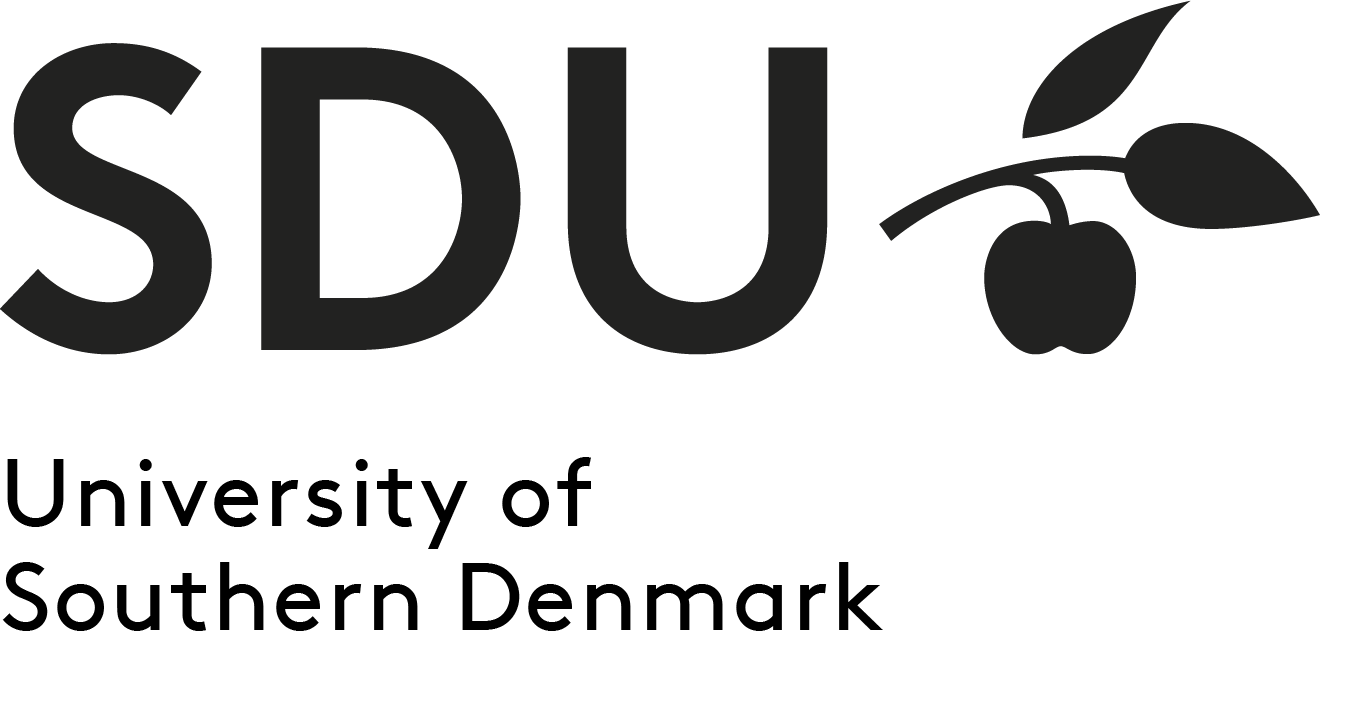
Two-year Postdoc position on Neuromorphic Bioelectronics for Brain-Computer Interfaces
The Institute of Mechanical and Electrical Engineering at the University of Southern Denmark (SDU) invites applications for a 2-year Postdoctoral Researcher position. This position offers an exciting opportunity to contribute to a new research project in neuromorphic bioelectronics for brain–computer interfaces (BCIs). We are seeking a highly motivated postdoctoral researcher to design and implement a CMOS-based digital neuromorphic processor for classifying hand-movement intentions from EEG recordings of patients with hand motor impairments caused by stroke. The position is part of the multidisciplinary research project NeuroMate, which focuses on the development of intelligent assistive technologies based on brain-inspired computing. The overarching goal of the project is to enable seamless human–machine interaction by interpreting brain activity (e.g., EEG signals) in real time using energy-efficient neuromorphic hardware. The successful candidate will work on the design and hardware realization of neuromorphic systems, bridging neuroscience and electronics. The project combines expertise in circuit design, machine learning, and neurotechnology, and aims to deliver innovative solutions for applications such as brain–computer interfaces, cognitive rehabilitation, and neural prosthetics. The position is open from May 2026, and the specific start date will be agreed with the successful candidate. Further information For further information about the position, please contact Professor Farshad Moradi (moradi@sdu.dk / email), Head of the SDU Microelectronics section and Associate Professor Hooman Farkhani (farkhani@sdu.dk / email), Deputy Head of SDU Microelectronics. If you experience technical problems, please contact our email support.
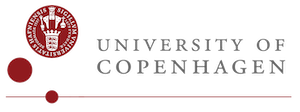
Postdoc in Human Movement Neuroscience at Department of Neuroscience
The Department of Neuroscience is looking for a highly motivated and dynamic postdoc for a 3-year Postdoc position in Human Movement Neuroscience to commence 1st of June 2026. The postdoc position is made possible by a research grant from the Novo Nordisk Foundation to Jens Bo Nielsen and aims to understand the spinal neural mechanisms underlying dystonia and investigate changes in spinal neural transmission following Deep Brain Stimulation (DBS) of the globus pallidus Information on the department can be found at: https://in.ku.dk/research/nielsen-lab/ Questions For further information please contact Jens Bo Nielsen, jbnielsen@sund.ku.dk; https://in.ku.dk/research/nielsen-lab/ Foreign applicants may find this link useful: www.ism.ku.dk (International Staff Mobility).

Postdoc in Experimental Quantum Photonics
The Quantum Optoelectronic Devices Group investigates quantum mechanical effects of light in photonic integrated circuits. Our team develops innovative devices for generating and manipulating photons at the nanoscale, with strong expertise in design, modelling, and nanofabrication of III–V optoelectronic and nanophotonic structures.

PhD position at the Center for Polariton-driven Light-Matter Interactions (POLIMA)
The successful candidate will work on assembling and developing experimental templates for the observation of strong light–matter coupling in cathodoluminescence spectroscopy, to investigate the emergence and properties of polaritons in state-of-the-art nanophotonic systems including two-dimensional materials, high-index dielectrics, topological insulators, organic molecules, noble metals, and their combinations. Emphasis will be placed on curiosity-driven explorations of unconventional light–matter interactions in those systems, and their understanding in the framework of classical and quantum optics, in combination with solid-state physics. The candidate will collaborate with a strong theory team within POLIMA, to enable a complete description and practical realization of strong coupling in electron–light–matter systems.
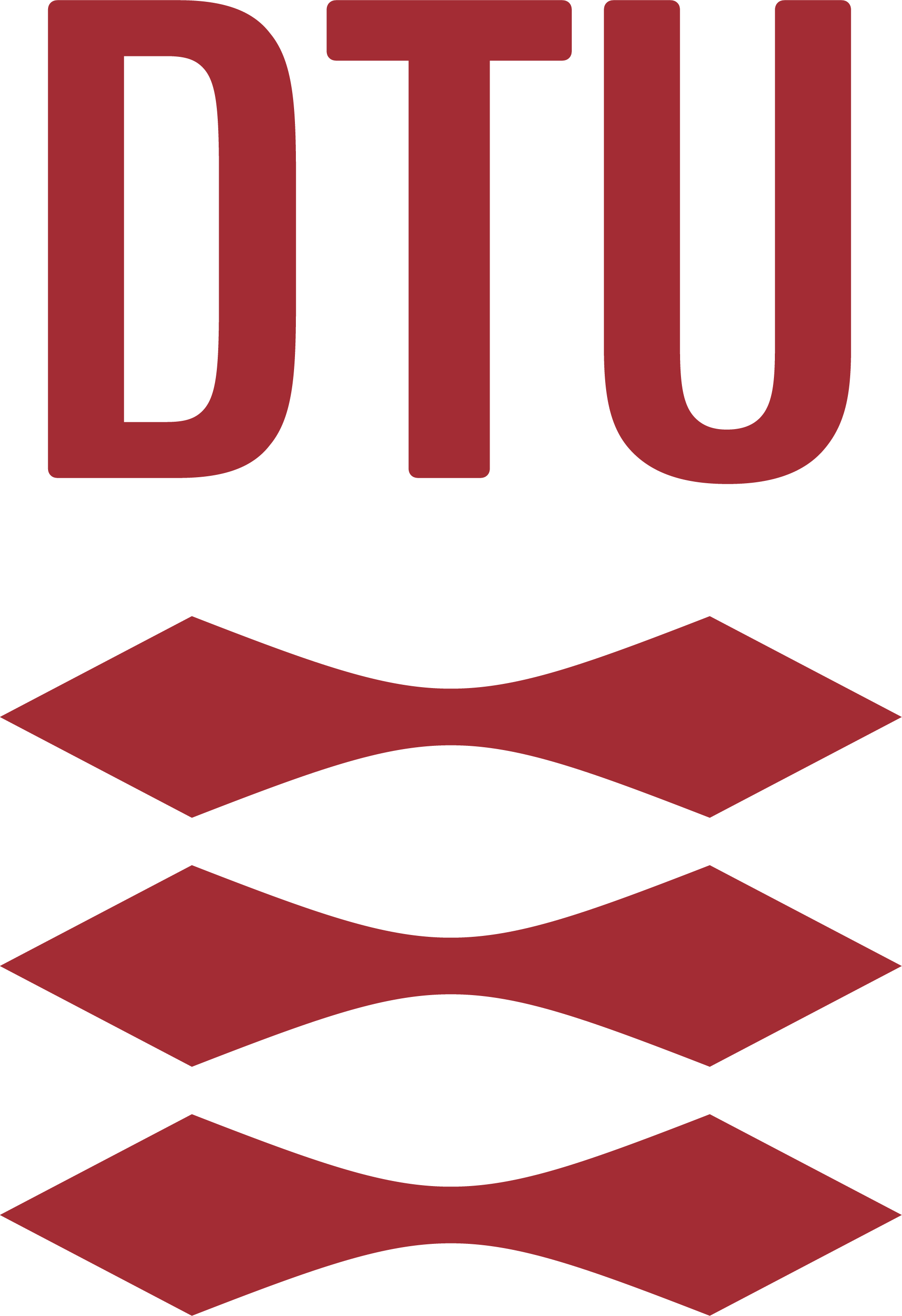
PhD scholarship in Photonic Reservoir Computing in Coupled Resonant Structures - DTU Electro
The Machine Learning in Photonic Systems group at DTU Electro at the Technical University of Denmark is seeking a candidate for a PhD position to research multiplexing in photonic integrated circuits for enhancing computing efficiency through parallelism. The PhD student will participate in an international team in an EU-funded Doctoral Network project called MINDnet. The project consists of 15 Ph.D. students at 7 universities, one research center and two companies. The project has partners from eight different EU countries. All 15 Ph.d. projects are within the overall theme of neuromorphic computing and analog signal processing, targeting applications in the fields of communication, sensing, geolocalization, space and biomedical. This Ph.D. project will take place at DTU Electro. Apart from the time at DTU there will be secondments of minimum 3 months at Technical University of Illmenau (DE), HPE (BE) and University of Trento (IT). There will also be regular meetings with the other 14 Ph.D. students in the doctoral network, including 4 training schools and two workshops. Further information Further information may be obtained from Assoc. Prof. Francesco Da Ros (fdro@dtu.dk).

PhD Projects in Theoretical Quantum Optics and Quantum Information
The Niels Bohr Institute invites applicants for two PhD fellowships in Theoretical Quantum Optics and Quantum Information. The projects will be part of the theoretical quantum optics group and the Center for Hybrid quantum Networks (Hy-Q). The starting date is (expected to be) 1 September 2026 or as soon as possible thereafter. An earlier starting date may also be a possibility.

PhD scholarship in “live” Visualization of Nanoparticle Catalysts at the Atomic-Scale
Are you passionate about pushing the frontier of catalysis science? The Center for Visualizing Catalytic Processes (VISION) at the Technical University of Denmark (DTU) is offering multiple PhD scholarships in 2026 focusing on nanoparticle catalysis using advanced operando electron microscopy. If you thrive in a collaborative, cutting-edge setting and want to make a global impact, we want to hear from you!

Postdoc in Environmental Materials Science: Developing Novel Photocatalytic Biochar for Sustainable ...
We are seeking a highly motivated postdoctoral researcher to join a high-impact research initiative addressing one of the most pressing environmental challenges - the global “forever chemical” (PFAS) crisis. This exploratory project is funded by the Villum Experiment Programme and aims to move beyond conventional, energy-intensive separation technologies by investigating sustainable catalytic materials capable of destroying persistent PFAS compounds such as PFOA and PFOS.

PhD scholarship in Microbial Biotechnology
The PhD student will be responsible for optimizing selected food grade microorganisms using both natural and genetic engineering approaches. Hence, extensive experience with microbiology and metabolic engineering is required. Experience with genetic engineering is a prerequisite. Since a major activity in the project is fermentation, the successful candidate should have experience with this, also with using bioreactors. A publication record is an advantage.

PhD scholarship in Atomistic Modelling of Magnetically Activated Moiré Superlattices for Tuneable El...
Overall, you will contribute to the development of AI-enhanced autonomous workflows for interface. These implementations will be general and will be applied to core technologies of the department, e.g., batteries and catalysts. The project includes collaboration with experimentalists at DTU, who will verify the computational predictions as well as international collaborations with the University of Pavia (Italy) and Paul Scherrer Institute, Switzerland.

Associate Professor in Experimental CERN-related Physics
The department seeks to strengthen its existing activities in experimental physics in relation to CERN. The group currently participates in experiments at CERN with focus on anti-hydrogen physics, low-energy nuclear physics and strong-field quantum electrodynamics and wishes to expand into other or similar areas of research performed at CERN, preferably areas that may be synergetic with the current activities. We are thus looking for applicants who will complement and/or strengthen the existing CERN-related physics research group at the department. Contact information For further information, please contact: Head of Department, Professor Ulrik Ingerslev Uggerhøj, phone +4523382373, email ulrik@phys.au.dk.

Academic Technical Assistant for Behavioral and Neurobehavioral Testing, Department of Molecular Med...
The Department of Molecular Medicine, Faculty of Health Sciences, University of Southern Denmark (SDU), invites applications for a full-time Academic Technical Assistant in the Phenotyping Core of the newly established Danish Center for Mouse Transgenics and Advanced Phenotyping (DCM-TAP). The position is available from September 1, 2026, or as soon as possible thereafter. The position is offered for an initial period of 3 years. About DCM-TAP DCM-TAP is a newly established open-access research infrastructure at SDU, integrating state-of-the-art mouse transgenics, advanced phenotyping, and microsurgery. The center is located at the new SUND campus, directly connected to Odense University Hospital, providing a unique environment for translational biomedical research. The Phenotyping Core focuses on advanced behavioral, neurological, metabolic, and physiological phenotyping of mouse models and supports researchers from SDU, other universities, hospitals, and industry. Contact information For further information about the position, please contact: Professor Kate Lykke Lambertsen Director, Phenotyping Core, DCM-TAP Department of Molecular Medicine, SDU Email: klambertsen@health.sdu.dk

Faculty position in Molecular Health (Tenure-Track Assistant Professor / Associate Professor) at Aar...
The Department of Molecular Biology and Genetics at Aarhus University aims to strengthen its research and teaching activities within the broader field of Molecular Health. We seek candidates with a strong basic molecular biology profile and with a clear focus on human health. Applications for a tenure-track Assistant Professor position or an Associate Professor position are invited, starting 15 June 2026 or as soon as possible thereafter. With this new position, we aim to engage research topics that complement and expand our current research portfolio and teaching activities. We particularly look for candidates interested in providing a molecular, mechanistic understanding of central processes in physiology, development and disease. Relevant research areas include molecular aspects of: Immunology Microbiology and infectious diseases Metabolism Ageing Disease mechanisms Contact information For further information, please contact: Head of Department, Claus Oxvig. Phone number: +45 30362460 Email: co@mbg.au.dk

PhD fellowship in Superconducting Quantum Engineering
The Novo Nordisk Foundation Quantum Computing Program (NQCP), funded by the Novo Nordisk Foundation, is building a talented and diverse international team to create a cutting-edge program in the heart of Copenhagen, Denmark. At the Niels Bohr Institute (NBI), University of Copenhagen, where the formulation of Quantum Mechanics was born 100 years ago, the ambition is to build a mission-driven full-stack approach which will involve exciting innovations at every level, from the quantum processor to the quantum-classical interface all the way quantum algorithms and applications. The vision of the programme is to enable the development of fault-tolerant quantum computing hardware and quantum algorithms that solve important problems in the life-sciences.

Postdoc/Assistant professor in Drosophila Cellular and Molecular Neurobiology
The aim of the project is to use accelerated evolution in the Drosophila model identify mutations increasing the resilience against Parkinson’s disease. The Kjaerulff group is an interdisciplinary team based at Department of Neuroscience working at the intersection between Drosophila genetics, cell biology and protein chemistry. Our most recent focus has been the involvement of the small GTPase Rab2 in lysosome biogeneis and axonal transport of dense core vesicles. In parallel, we are working in collaborative projects with Drosophila disease models associated with dopaminergic neurotransmission. For more information about the group, see https://in.ku.dk/research/kjarulff-lab/ Your main task will be to establish in the lab a Drosophila Parkinson’s disease model expressing a transgenic mutator enzyme, and to create and implement a workflow for assaying disease severity, whole-genome sequencing and evaluation of the mutations. Profile We are looking for a devoted scientist with the following competencies: Essential experience and skills: You have a PhD in in biomedical sciences, biology, or a related discipline. You are highly experienced in practical Drosophila genetics, cell biology, genetic and/or proteomics screens, immunohistochemistry, confocal and super resolution imaging. You have an interest in evolutionary processes. Proficient communication skills and a collaborative attitude with ability to work in teams. Excellent English skills written and spoken. Desirable experience and skills: Prior work with Drosophila disease models Experience with programming in Python and R Questions For further information please contact Ole Kjærulff.

Postdoc in image-based analysis of neurovascular and neurocognitive changes after radiotherapy of ch...
The Department of Clinical Medicine at Faculty of Health at Aarhus University invites applications for a postdoc position in the field of medical physics, within the topic image-based analysis of neurovascular and neurocognitive changes after radiotherapy of childhood brain tumours, as per May 1, 2026 or as soon as possible thereafter (after agreement). The working place for the postdoc will be the Danish Centre for Particle Therapy (DCPT) at Aarhus University Hospital. The position is a fixed-term full-time position, for two years. At the Department of Clinical Medicine, you will be part of what is probably the largest health science research department in Denmark. Our clinical research covers all medical specialities and takes place in close collaboration with Aarhus University Hospital and the regional hospitals in the Central Denmark Region. We have approx. 30,000 square metres of modern research facilities for experimental surgery and medicine, animal facilities, and advanced scanners at our disposal. The department has overall responsibility for the Master's degree programs in medicine and in molecular medicine. At the department we are approx. 425 academic employees and the same number of PhD students cooperating across disciplines. As a postdoc, you will be affiliated with the Department of Clinical Medicine, but your workplace will be at DCPT and Aarhus University Hospital. You can read more about the department here and about the Health faculty here. Questions about the position If you have any questions about the position, please contact Professor Ludvig Paul Muren, tel.: (+45) 30593088. Your place of work will be the Danish Centre for Particle Therapy, Aarhus University Hospital, Palle Juul-Jensens Blvd. 25, 8200 Aarhus, Denmark.

Postdoc positions in the field of mRNA modifications in plants
A 2.5-year post-doctoral position is available in the Brodersen laboratory to work on the interplay between N6-methyladenosine, its cognate cytoplasmic RNA binding proteins and other RNA-binding proteins targeting m6A-containing mRNAs.

Quantum Materials Engineer (Silicon Germanium Epitaxy)
As a new Quantum Materials Engineer in the Front End Epitaxy team, you will develop and optimize waferscale crystal growth processes using advanced deposition and characterization tools for Silicon–Germanium Molecular Beam Epitaxy. You will contribute across multiple projects and collaborate closely with both QF and NQCP stakeholders, sharing regular updates on epitaxy workflows and materials characterization.

Tenure-Track Assistant Professor / Associate Professor in Bioinformatics and/or Computational Biolog...
A position as Tenure-Track Assistant Professor or Associate Professor in Bioinformatics and/or Computational Biology is available from September 1, 2026, at the Section for Bioinformatics and Computational Biology (BiRC), Department of Molecular Biology and Genetics (MBG), Aarhus University (http://birc.au.dk), Denmark. The application deadline is 7 April 2026. The position We seek a highly motivated researcher in bioinformatics and/or computational biology to complement and expand our current research portfolio and teaching activities. We welcome applicants within all areas of bioinformatics and computational biology with a strong focus on development of computational and statistical methods, particularly within machine learning and artificial intelligence. The applicant must have earned a PhD degree and have demonstrated excellence in research and scholarship within the field of interest. As an assistant professor in a tenure track position, you are expected to develop an independent and competitive research program, and you will be offered local mentoring during the tenure track period. Start-up funds to establish a competitive research program are negotiable. In case of more senior applicants, a position as associate professor will be considered. As a researcher at MBG, you will be part of a vibrant, collaborative and international research environment. Internal communication and teaching are primarily conducted in English and international candidates are therefore not required to learn Danish. BiRC and MBG aim to be an attractive and inspiring workplace for all, and we view equality and diversity as assets. Aarhus University offers a broad variety of services for international researchers and accompanying families, including relocation service and career counselling to expat partners. English is spoken with high proficiency by most Danes, which will ease the arrival and integration of international applicants. Further information For more information, please contact Head of Department (MBG) Claus Oxvig Phone number: +45 30362460 Email: co@mbg.au.dk or Head of Section for Bioinformatics and Computational Biology (BIRC) Christian Storm Pedersen Phone number: +45 27782810 Email: cstorm@birc.au.dk For information about BiRC and MBG, see http://www.birc.au.dk and http://www.mbg.au.dk

Laboratory technologist within neuroscience
The Department of Biomedicine at Faculty of Health at Aarhus University invites applications for a position as a Laboratory technologist within neuronal stem cells as per 1 May 2026 or as soon as possible thereafter. The position is a permanent full-time position. The Department of Biomedicine prioritises diversity and a good work environment, as this is a prerequisite for groundbreaking research. In a diverse and international research environment, dedicated employees are looking to generate new knowledge within biomedical research areas such as infection and inflammation, membranes, neuroscience and personalised medicine. The Department of Biomedicine provides research-based teaching of the highest quality and is responsible for a large part of the medical degree programme. Academic staff contribute to the teaching. English is the preferred language in the laboratory, at meetings and at seminars. The department employs approx. 500 people from all over the world, and they make use of the department's modern laboratory-, core- and animal facilities. The Department of Biomedicine focuses on innovation, entrepreneurship and collaboration with business and industry, and numerous researchers from the department have established companies to develop new medicinal treatments founded in professional scientific basic research. You can read more about the department here and about the faculty here. Your job responsibilities As a laboratory technologist, your primary tasks are advanced cell culture work and day-to-day lab management. You contribute to neuroscience through differentiation of stem cells and generating omics data. In your daily work, you have a close interaction with competent colleagues. Your main tasks will consist of: Maintain and differentiate human stem cells (essential) Generate and maintain brain organoids (preferred) Use standard molecular biology techniques, including cloning and DNA/RNA extraction Support and contribute to high-throughput experiments (e.g., CRISPR screens, NGS, single-cell sequencing) Manage daily laboratory operations, including ordering, inventory, scheduling, and equipment upkeep Train and support new laboratory members Work independently while collaborating effectively with team members Use Microsoft Office for documentation, reporting, and lab administration The position involves active participation in research projects using stem cells in collaboration with other laboratory members. In addition to research, you will be responsible for general laboratory management, including the administration of laboratory resources, procurement, scheduling shared duties, and training new group members. Regular participation in supervision meetings with the group leader and laboratory members is expected. Questions about the position If you have any questions about the position, please contact Professor Kyung Min Noh tel.: (+45) 2248 7695. Your place of work will be the Department of Biomedicine, Høegh-Guldbergs Gade 10, DK-8000 Aarhus C, Denmark. We expect to conduct interviews the middle of March. You will report to the Professor Kyung Min Noh

Professor in Basic or Translational Biomedicine
Professor in Basic or Translational Biomedicine Faculty of Health and Medical Sciences University of Copenhagen The Department of Biomedical Sciences, Faculty of Health and Medical Sciences, University of Copenhagen, seeks to appoint a professor in basic or translational biomedicine to commence 1 November 2026, or as soon as possible thereafter. The vision of the Department of Biomedical Sciences is to be a leading interdisciplinary research department that generates cutting-edge knowledge with the potential to prevent and treat diseases, improve human health, and make a positive impact on society. Our research aims to generate new knowledge that can be used in the prevention and treatment of various diseases, such as diabetes, cardiovascular disease and obesity. We strive to contribute to the advancement of biomedical research with a focus on translating our findings into practical solutions that benefit society. The staff at the department delivers cutting-edge research-based and clinically relevant undergraduate teaching on courses within biomedicine, and the staff supervises postgraduate students enrolled at the Graduate School. The Department is supported by a strong team of laboratory technicians and administrative staff. Information on the research fields and teaching activities of the department can be found at the Department’s website Job description We seek a highly motivated candidate with a documented, internationally recognized, independent, and original research portfolio within a research field linked to the Department’s research themes and with the research methods within the spectrum from structural biology, single cell studies, and experiments in tissues, organs and whole animals to experiments in humans. We expect the candidate to fully engage in delivering and developing top notch research-based and student activating teaching. Furthermore, we would favour strong translational experience linking to national and/or international clinical environments and/or commercial and pharmaceutical companies. Finally, we emphasize that public science dissemination as well as a focus towards innovation are key to the Departments output. Questions For further information, please contact Head of Department, Birgitte Holst, holst@sund.ku.dk.

Postdoc in atomic and nanoscopic dynamics in quantum materials
Looking for a candidate to lead our X-FEL and synchrotron-based experiments to study the dynamics of light-induced phase transitions on atomic and nanoscopic length-scales driven by optical and phononic excitation. The focus will be on understanding how different excitation methods generate polarons and correlated materials in the cuprates and other quantum materials, building on our recent results in the vanadium dioxide (see Johnson et al. Nature Physics 20, 970 (2024)).

PhD scholarship in First-principles Theory of Exciton Interactions and Dynamics in 2D Moiré Systems
The section for Computational Atomic-scale Materials Design (CAMD) at the Technical University of Denmark (DTU), is seeking an outstanding and highly motivated candidate for a PhD position within the area of ab initio many-body theory with applications to excitons in complex 2D van der Waals materials. The position is funded via a EuroTech Alliance Stipend and involves collaborations with the experimental group of Andras Kis at EPFL.

PhD fellowship in Fruit Science
The PhD student will be working on a recently funded project on crop physiology in grapevine and apple. The project is a part of an EU partnership project with partners in Belgium and Netherlands. Field trials will be made at the Pometum at Copenhagen University but also in living labs hosted by vine growers in Denmark.

PhD scholarship in Theoretical Chemistry: Molecular Quantum Technology and Optical Deracemization
If you are passionate about theoretical chemistry/physics and curious about its potential application to molecular quantum technology, this is the position for you at DTU Chemistry in the group of Niels Engholm Henriksen (https://www.kemi.dtu.dk/english/research/physical-chemistry). You must have a solid foundation and interests in quantum chemistry, applied mathematics, programming, and computer simulations.

2 PhD fellowships in in-vitro digestion of novel plant-based ingredients
These positions are part of a larger research project funded by the Novo Nordisk Foundation “Naturally Smart: Sustainable Food using Artificial Inteligence (AI4NaturalFood)”. Start date is expected to be 1 June 2026 or as soon as possible thereafter.

Postdoc in Theoretical Modeling of Quantum Emitters with Ab-Initio and Open-Quantum-System Methods
The project takes place in the Quantum Light Sources group at DTU Electro, where we design, model, fabricate and test sources of single photons or entangled photon pairs. These are essential components for optical quantum computers and quantum networks, where one bit of information is encoded in the quantum state of a single photon. You will be part of a team of 10-12 people between senior staff, PostDocs and PhD/Master students that are trying to establish the indispensable building blocks for the quantum technology of tomorrow.

Postdoc in Remote Sensing for Agroecosystem Sustainability
The Department of Agroecology at Aarhus University, Denmark, is offering a postdoctoral position in global change and ecosystem sustainability, starting from 1 June 2026 or as soon as possible thereafter. The position will be available for a 2-year period. This position will be located at the Pioneer Center Land-CRAFT, which was established in June 2022 to undertake fundamental and applied research that addresses these issues. The center brings together experts on climate impact research and process-based modelling of biogeochemistry, agronomy, biology and geography from Aarhus University and University of Copenhagen, as well as international partners. Field experiments, digital technologies -- including modelling and remote sensing, as well as interactions with stakeholders are key components of Land-CRAFT.

Assistant Professor on Characterization and Development of Integrated Quantum Photonic Devices
NQCP is seeking an experienced quantum photonic researcher to oversee the Photonics unit within the Characterization Team. You will be establishing and running protocols to evaluate the progress of our state-of-the-art quantum photonic experiments and developing hardware for the generation and processing of high-quality photonic entanglement, central to our photonic quantum processors. As part of the position, you will lead a team of photonic researchers and engineers, and be responsible for designing, operating, and automatizing room-temperature setups (classical characterization) and cryogenic setups (quantum characterization) . The scope of responsibility centers on photonic system engineering and includes running measurements, data tracking & analysis, and reporting. The work will be done in close collaboration with various teams in the NQCP program, such as the photonic platform team, fabrication, theory & simulation teams, and Quantum Foundry Copenhagen (QFC), as well as various international partners from industry and academia.

PhD Scholarship in Electrochemical Direct Air Capture Using Combined Computational and Experimental ...
This PhD position focuses on fundamental and applied research in electrochemical direct air capture (e-DAC) at DTU Energy. The project addresses key scientific and technological challenges associated with capturing CO₂ directly from ambient air and is suited for candidates interested in combining computational modeling with experimental electrochemistry to develop energy-efficient e-DAC systems.

Postdoc positions for N2 and/or CO2 Conversion by Hydrogenation into useful Chemicals using Thermal ...
We are currently further pursuing these systems continuing these fundamental surface science experiments- see SCIENCE 383 (2024) 1357- but are also aiming at realising high area materials capitalizing on this insight. A similar system as described above for ammonia has also been established for or CO2 hydrogenation where we also have a long tradition for work on both the fundamental level as well as for high area materials.

Postdoctoral Fellow in Systems Motor Neuroscience
A 3-year postdoctoral fellowship is available in the laboratory of Professor Ole Kiehn at the Department of Neuroscience, Faculty of Health and Medical Sciences, University of Copenhagen, Denmark. The lab focus is to understand the mechanisms by which neurons and neuronal circuits operate and integrate to generate and control movements. The aim of the project is to investigate and understand the contribution of distinct supraspinal neuronal circuits to movement in mammals. Questions For further information please contact Ole Kiehn, ole.kiehn@sund.ku.dk or Ima Mustafic, imalea@sund.ku.dk Foreign applicants may find this link useful: ism.ku.dk (International Staff Mobility).

Associate Professor in Fungal Biology and Biosolutions
Are you the new Associate Professor in Fungal Biology and Biosolutions at DTU Bioengineering? The position offers an opportunity to join DTU's strong research ecosystem within mycology and fungal biosolutions, and to leverage DTU’s unique fungal strain collection to develop much needed biosolutions with the agriculture, food, and medical sector.

Postdoc in Environmental Materials Science: Developing Novel Photocatalytic Biochar for Sustainable ...
We are seeking a highly motivated postdoctoral researcher to join a high-impact research initiative addressing one of the most pressing environmental challenges - the global “forever chemical” (PFAS) crisis. This exploratory project is funded by the Villum Experiment Programme and aims to move beyond conventional, energy-intensive separation technologies by investigating sustainable catalytic materials capable of destroying persistent PFAS compounds such as PFOA and PFOS.

Postdoc in Advanced Structural Characterization of Single-Molecule Adsorption in Nanoporous Material...
Join the National Centre for Nanofabrication and Characterization (DTU Nanolab) at the Technical University of Denmark (DTU) to investigate molecular adsorption mechanisms in porous crystals (and hybrid adsorbents), including MOFs, COFs, zeolites, porous carbons, and mesoporous oxides, for applications spanning separations, catalysis, sensing, and environmental remediation.

Postdoc in Development of Durable Solid Oxide Electrolysis Cells (SOECs)
Would you like to contribute to cutting-edge research on developing durable solid oxide electrolysis cell (SOEC) technology? DTU Energy is looking for a postdoctoral researcher to join our research activities focused on the development and long-term durability of SOEC cells, with particular emphasis on operation under technologically relevant conditions.

Quantum Engineer, Superconducting Qubits
As part of the Quantum Processor Integration team, you will drive the development and validation of superconducting quantum processors. You will get the opportunity to collaborate closely with qubit design, materials, and fabrication teams to iteratively optimize quantum processor performance. Additional key responsibilities and tasks may include: Characterizing superconducting quantum processors at cryogenic temperatures, both novel qubit prototypes and scaled systems. Building and validating cryogenic test platforms for quantum processor benchmarking. Collaborating closely with hardware partners on system integration of quantum processors. Performing analysis of measurement data, documenting and communicating results to stakeholders. Contributing to measurement code development and automation of measurement workflows. Application and Information For more information, please contact – Karl Petersson, QPU Integration Lead (kdp@qfcph.com).

PhD scholarship in Cryptography
The focus of the PhD project is on advancing the theory and practice of secure Multi-Party Computation (MPC) and Zero-Knowledge (ZK) Proofs. The successful candidate will investigate the formal design and security analysis of MPC protocols and ZK proofs, with a particular emphasis on foundational aspects. The project will also explore efficiency and post-quantum security, aiming to bridge theoretical advances with their relevance to practical applications.

PhD fellowship in plant-soil interactions
The Department of Plant and Environmental Sciences (PLEN) at University of Copenhagen invites applicants for a PhD fellowship in quantifying multi-species benefits of ley mixtures in relation to plant root growth, potential stabilisation of soil organic matter, and soil biota. The project is part of the research project “Grassy - Can diversity deliver ‘climate-smart’ grassland systems?”, financed by the Independent Research Fund Denmark.

PhD scholarship in Computing Parallelism Enabled by Photonic Integrated Circuits - DTU Electro
The PhD student will participate in an international team in an EU-funded Doctoral Network project called MINDnet. The project consists of 15 Ph.D. students at 7 universities, one research center and two companies. The project has partners from eight different EU countries. All 15 Ph.d. projects are within the overall theme of neuromorphic computing and analog signal processing, targeting applications in the fields of communication, sensing, geolocalization, space and biomedical. This Ph.D. project will take place at DTU Electro. Apart from the time at DTU there will be secondments of minimum 3 months at University of Pisa (IT), Fraunhofer Heinrik Hertz Institute (DE) and Spincloud (DE). There will also be regular meetings with the other 14 Ph.D. students in the doctoral network, including 4 training schools and two workshops. As a participant of the project, the PhD student will become part of a team at DTU with numerical and experimental expertise in photonic computing. The activities within the project will benefit from synergies with other projects in the group as well as with other activities at the department. The main supervisor will be Assoc. Prof. Francesco Da Ros, DTU Electro.

Postdocs in High-Resolution Quantum Sensing of Magnetic Fields
Are you passionate about quantum physics and the application in cutting edge technologies? Do you enjoy tackling experimental challenges, pushing the frontiers of physical observations? And would you like to play a key role in advancing quantum science and technology research at DTU?

Post doc in headache research
As post doc you will investigate the signalling pathways driving the headache phenotype in a rodent model of idiopathic intracranial hypertension. The position will start on the 1st of August 2026, and the job is in the Kaag Rasmussen lab at Center for Translational Neuromedicine, Copenhagen, Denmark. Center for Translational Neuromedicine focuses on developing new approaches for examining and treating neurological diseases, primarily using the tools of physiology and imaging coupled with cell and gene therapy. Our emphasis is on using these technologies to enable neural and glial cell replacement in the adult brain and spinal cord, as a means of both disease modelling and therapeutic repair. Information on the department can be found at: https://ctn.ku.dk/. Our center Center for Translational Neuromedicine currently has 55 employees and students and is divided into five labs. CTN is characterized by a highly ambitious research environment. The Center is highly interdisciplinary and has many international collaborators. The post doc will be part of the Kaag Rasmussen lab, Division of Pain Volume Transmission. Being part of the Kaag Rasmussen lab offers an opportunity to work in an in vivo lab engaged in the neuroscience of pain signalling, focusing on transgenic animal models, behaviour, in vivo imaging and omics technologies. CTN is part of the Faculty of Health and Medical Sciences, University of Copenhagen, and is located at Panum. The Center comprises modern laboratories and excellent facilities within neuroscience. The project that we are recruiting for focuses on delineating the signalling pathways that are driving the migraine phenotype. The project is a continuation of this research paper published in Science July 2024: https://www.science.org/doi/10.1126/science.adl0544. Here we identified how the peripheral sensory nerves are activated in a mouse model of migraine with aura. In this current project we will investigate the engagement of downstream signalling pathways of the proteins identified in the research paper above with a goal of delineating the specific signalling pathways that are driving the migraine phenotype. Questions For further information please contact Martin Kaag Rasmussen martin.rasmussen@sund.ku.dk or Center Administrator Ann Christensen, ann.christensen@sund.ku.dk.

2 PhD fellowships in in-vitro digestion of novel plant-based ingredients
The Department of Food Science, Section of Ingredients and Dairy Technology, invites applicants for two PhD fellowships in studying the digestive properties of novel ingredients and food materials with the aim to contributing towards the development of future, sustainable, healthy food options. These positions are part of a larger research project funded by the Novo Nordisk Foundation “Naturally Smart: Sustainable Food using Artificial Inteligence (AI4NaturalFood)”. Start date is expected to be 1 June 2026 or as soon as possible thereafter.
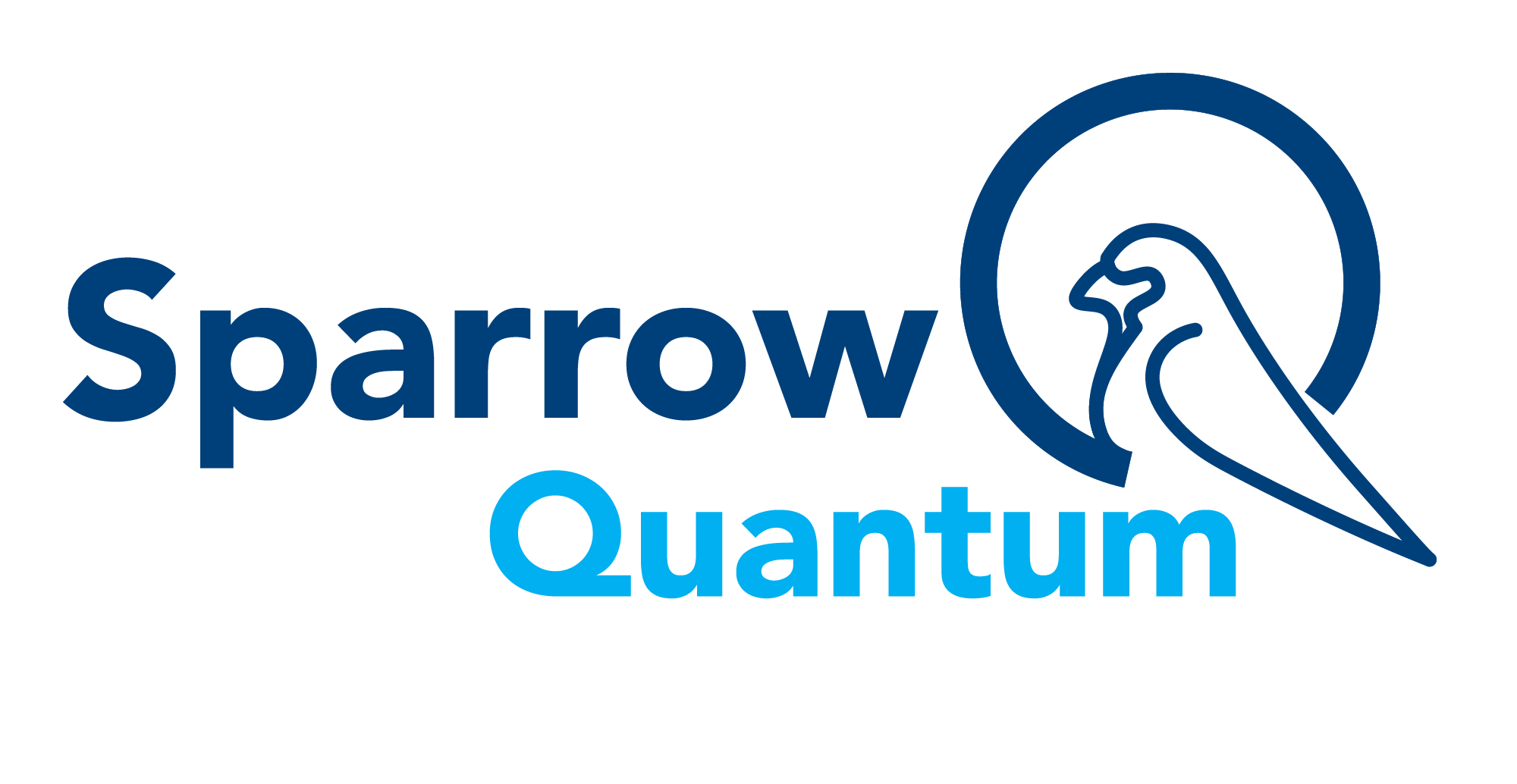
Open opportunities for researchers at the frontier of quantum photonics
Sparrow Quantum is always on the lookout for pioneering researchers. As a spinout from the Niels Bohr Institute, they’ve seen how bold ideas and groundbreaking research can evolve into world-leading commercial innovation—and they welcome those who want to be part of their journey to disrupt quantum photonics. That’s why they keep an open call for highly motivated researchers and quantum technologists who are excited about the most advanced quantum sources of today. They design roles around the right people, not the other way around; so, if you’re an outstanding researcher or engineer with the drive to shape the future of quantum photonics, they want to hear from you.

PhD fellowships in experimental materials chemistry and electrocatalysis
Project 1 will focus on the synthesis/structure/property relations in disordered high entropy oxide materials for with a strong emphasis on structural analysis using x-ray scattering techniques. The project will concern how structural disorder can be controlled in metal oxide synthesis. The candidate will be involved in the development of synthesis methods for oxides with structural disorder and will advance structural characterization of the materials using high-level synchrotron techniques. The candidate will be especially involved in understanding the structural changes taking place during synthesis reactions, and in situ synchrotron experiments will be central for the work. A major part of the PhD project will be data acquisition and high-level analysis. The project will be supervised by Kirsten M. Ø. Jensen. Project 2 concerns the electrocatalytic properties of mixed metal oxides. Mixed-metal oxides represent a promising strategy for the design of economically and environmentally scalable catalysts and supports for water electrolyzers. However, finding optimal materials requires exploration of a vast composition space, the exploration of which requires medium- to high-throughput methods of synthesis, characterization and testing. We are looking for a PhD candidate to develop and apply such methods.

Declaration of interest regarding PhD project on the long-term safety and benefits of ADHD medicatio...
ADHD is one of the most common psychiatric diagnoses in childhood and is characterized by persistent difficulties with attention, hyperactivity, and impulsive behavior. The condition can lead to significant challenges at school, at home, and in social relationships. In Denmark, around 5% of children and young people currently receive medication for ADHD—a proportion that has increased markedly over the past decade. Although many experience improvement in their symptoms, we still know far too little about how these medications affect children and adolescents in the long term. In particular, there is limited knowledge about the benefits and risks of treatment in real-world settings outside the short, controlled framework of clinical trials. In this project, we will combine Danish and Norwegian health registers with school data, clinical assessments of symptoms, and information on municipal services. We will analyze how ADHD medication affects the risk of serious adverse outcomes such as cardiovascular disease, substance misuse, and impaired growth. At the same time, we will examine how medication influences children’s schooling, well-being, and symptom levels. Finally, we will map how access to non-pharmacological support—such as parent training and school-based assistance—varies across the country. The project will generate new knowledge about how ADHD medication works in real-life settings and will provide a stronger basis for decision-making for families, professionals, and policymakers. For further information about the project, please contact: Helene Kildegaard Department of Public Health University of Southern Denmark (SDU) E-mail: hckildegaard@health.sdu.dk The pharmacoepidemiology group at Clinical Pharmacology, Pharmacy and Environmental Medicine (CPPEM), Department of Public Health, University of Southern Denmark, is looking for applicants for a fully funded 3-year PhD scholarship. The position is to be filled from June 1, 2026, or as soon as possible thereafter. The position is part of a newly funded research project aiming to understand long-term safety and beneficial effects of ADHD medication in children, adolescents and young adults as well geographical variation in access to support and diagnostic pathways.

Carbon flow assessment across the integrated manure management and anaerobic digestion chain
The PhD project is part of the research project FARMCHAIN, which aims to document the effect of frequent slurry removal in pig and cattle housing, combined with anaerobic digestion in biogas plants, on methane emissions from livestock manure. In this context, FARMCHAIN will generate robust documentation through measurements conducted in barns, large scale storage tanks, and at biogas facilities involving co-digestion with other substrates.

Quantum Logic Scientist
Sparrow Quantum is looking for a Quantum Logic Scientist to strengthen our theory effort at the core of our photonic quantum computing roadmap. This role is for someone who wants to work hands-on with fault tolerant quantum logic, noise models, and error-correcting codes, while staying tightly connected to experimental reality. You will work alongside theorists and experimentalists to design, analyze, and validate error correction strategies tailored to photonic platforms based on quantum emitters. The work feeds directly into product direction, scientific publications, and long-term architecture decisions.

PhD scholarship in Post-Quantum Anonymous Credentials
The main task is to explore and implement novel efficient anonymous credential schemes which remain secure against quantum attackers. You should have: Master’s degree (or equivalent) in computer science or a related field, with a specialization in post-quantum cryptography. Knowledge and experience in the implementation of cryptographic primitives or protocols. Very good written and oral English skills

PhD scholarship in data-driven modelling for catalytic organometallic reactions
This PhD project aims to build new composite models that allow integration of different types of data, such as computational transition state calculations, in-situ observations of reaction dynamics, and reaction yield datasets across chemical species from literature or high-throughput synthesis.

PhD Scholarships in Nanophotonics: Physics and Applications of Semiconductor Nanocavities with Sub-W...
The Center for Nanophotonics (NanoPhoton) at the Technical University of Denmark (DTU) conducts cutting-edge fundamental research on semiconductor nanocavities that confine light to dimensions far below the wavelength. Until recently, such extreme light localization was considered impossible, yet it now enables access to regimes of strong light–matter interaction. This opens exciting new opportunities in quantum and information technologies while advancing fundamental science. We refer to this emerging research area as Extreme Dielectric Confinement (EDC), and we invite you to become part of the team shaping this field
Keep up with the latest news in Danish research and career opportunities
Sign up for our newsletter to get the latest breakthroughs in Power-to-X, Neuroscience, and Biosolutions, exclusive updates on open positions, and an insider look at life as a researcher in Denmark.
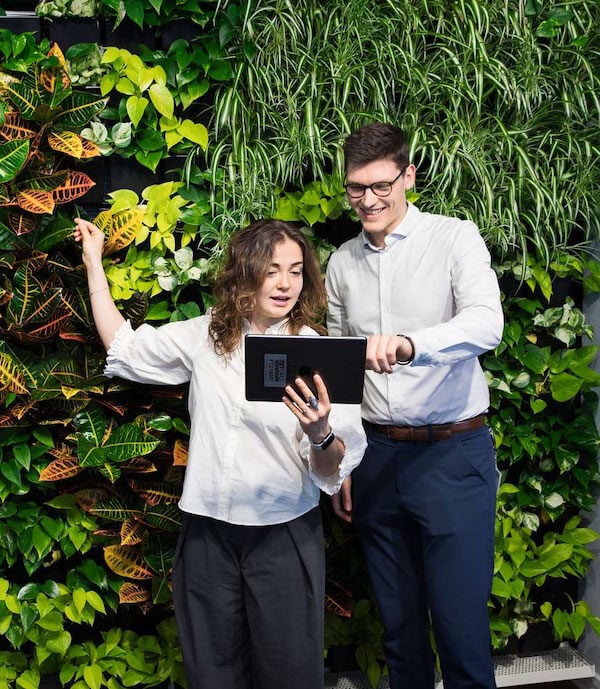
Ty Strange
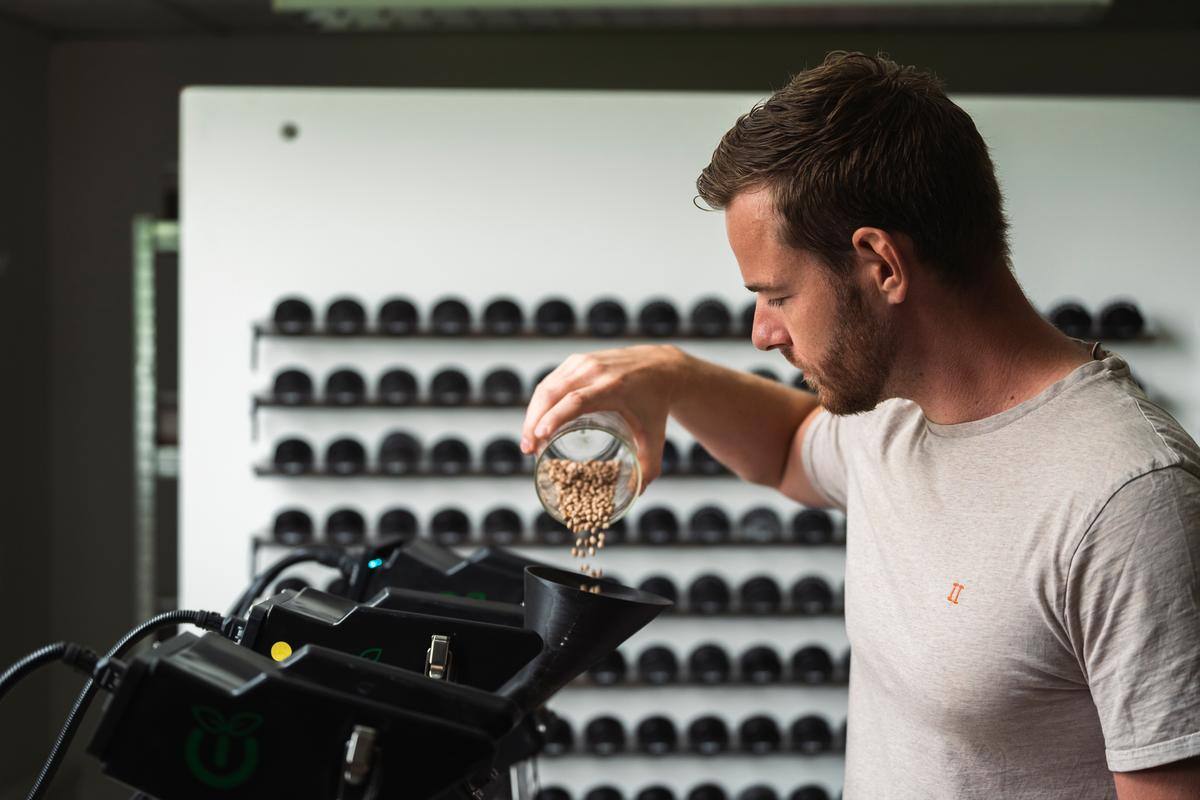
Daniel Rasmussen
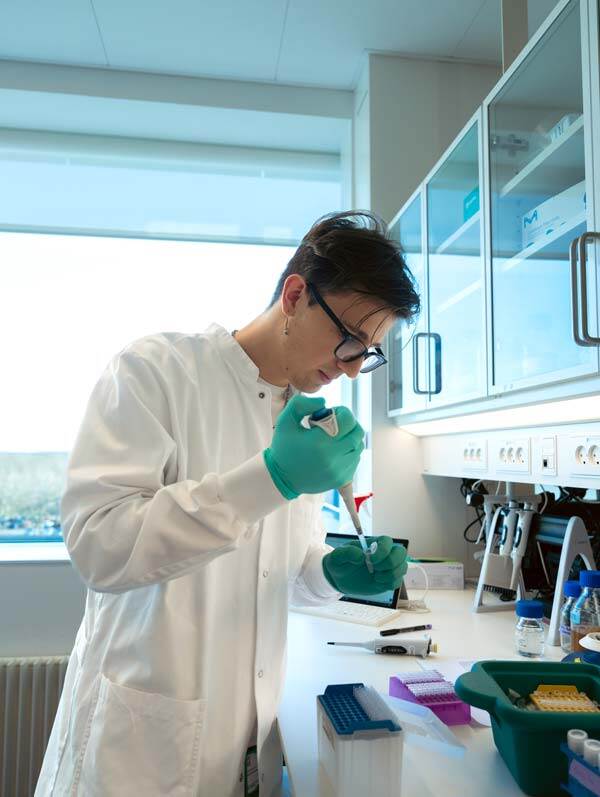
Daniel Rasmussen
Meet the minds driving Denmark ahead
Behind every breakthrough are passionate researchers pushing the boundaries of science and innovation.
In Denmark, we’re proud to support world-class
researchers across fields that are shaping the future. From groundbreaking energy solutions in Power-to-X, to pioneering discoveries in Quantum research, to transformative advances in Neuroscience and sustainable innovations in Biosolutions, these professionals are not only leaders in their fields, but also part of a broader, supportive community.
Discover their stories and see how Denmark helps both research and researchers flourish.
Events & Conferences
Upcoming opportunities to connect
Get in touch and learn more
Get job alerts from Denmark
Sign up and we’ll keep you updated with exciting research career opportunities.
Social & news
Funded by:








